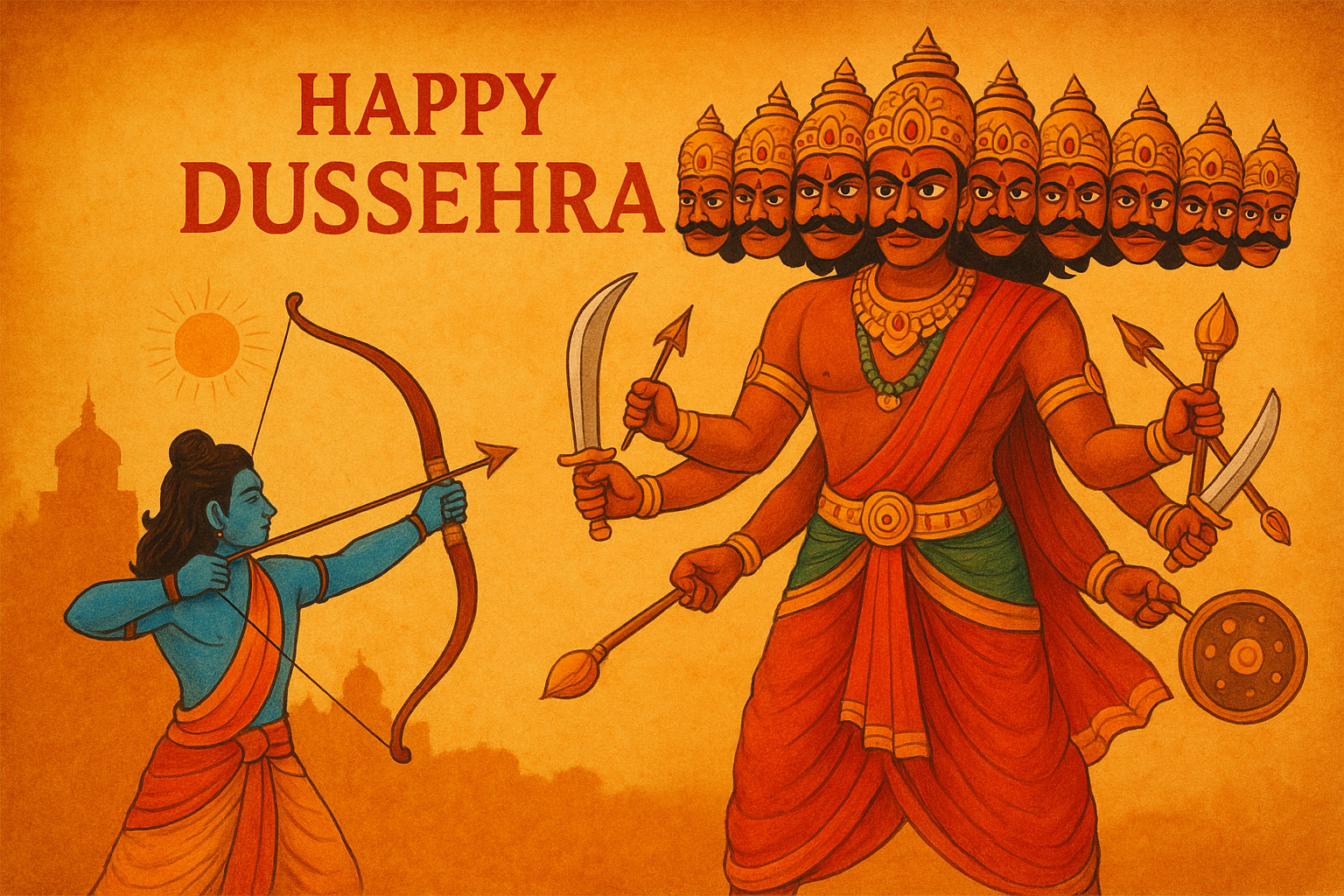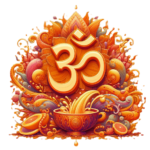Dussehra, also known as Vijayadashami, is one of India’s most vibrant and significant Hindu festivals, celebrated with immense joy and enthusiasm across the country. It marks the triumph of good over evil, symbolizing the victory of Lord Rama over the demon king Ravana, as narrated in the ancient epic, the Ramayana. This festival holds deep cultural, spiritual, and social importance, uniting people in a shared celebration of righteousness, devotion, and community spirit.
Dussehra falls on the tenth day of the Hindu month of Ashvin, typically in September or October, following the nine-day festival of Navratri. The festival is observed differently across India, reflecting the country’s diverse traditions. In North India, it is closely associated with the Ramayana, where Lord Rama, with the help of his brother Lakshmana, Hanuman, and his army, defeated Ravana, who had abducted Rama’s wife, Sita. The victory signifies the power of truth, courage, and dharma (righteousness). In many regions, the festival concludes with the burning of effigies of Ravana, along with his brother Kumbhakarna and son Meghnath, symbolizing the destruction of evil forces.
The celebrations of Dussehra are marked by various rituals and events. In North India, Ramlila, a dramatic reenactment of episodes from the Ramayana, is performed over several days, culminating in the burning of Ravana’s effigies on the tenth day. These performances attract large crowds who gather to witness the vibrant plays filled with music, dance, and dialogues.
The towering effigies, stuffed with fireworks, are set ablaze, creating a spectacular display that signifies the victory of good. In South India, particularly in Karnataka, Dussehra is celebrated with grandeur in Mysore, where the Mysore Palace is illuminated, and a grand procession featuring decorated elephants, music, and dance takes place. In Eastern India, especially in West Bengal, Dussehra coincides with the culmination of Durga Puja, where idols of Goddess Durga are immersed in water bodies, symbolizing her return to her divine abode.
Beyond its religious significance, Dussehra carries a universal message of hope and morality. It reminds us that no matter how powerful evil may seem, truth and goodness will always prevail. The festival also fosters unity, as families and communities come together to celebrate, exchange greetings, and share festive meals. It is a time for renewal, reflection, and strengthening bonds with loved ones.
Dussehra also holds cultural importance as it marks the beginning of preparations for Diwali, which occurs twenty days later. People clean their homes, wear new clothes, and participate in community events, making it a time of joy and togetherness. For farmers, Dussehra signifies the harvest season, and in some regions, it is an occasion to worship tools, weapons, and books, symbolizing gratitude for livelihood and knowledge.
In conclusion, Dussehra is a festival that encapsulates the essence of Indian culture—celebrating the victory of good over evil while promoting unity, devotion, and joy. Its diverse celebrations across India highlight the country’s rich heritage, making it a cherished occasion that inspires people to uphold truth and righteousness in their lives.
FAQ
Q1. What is Dussehra Festival?
Dussehra is a Hindu festival that celebrates the victory of good over evil, marking Lord Rama’s triumph over Ravana.
Q2. Why do we celebrate Dussehra?
It is celebrated to honor the victory of righteousness, symbolized by Lord Rama defeating Ravana and Goddess Durga defeating Mahishasura.
Q3. When is Dussehra celebrated in 2025?
In 2025, Dussehra will be celebrated on Wednesday, October 1, 2025.
Q4. How is Dussehra celebrated in India?
People burn effigies of Ravana, perform Ram Leela plays, worship Goddess Durga, and celebrate with fairs and cultural programs.
Q5. What is the importance of Dussehra for students?
For students, Dussehra teaches the values of truth, courage, discipline, and the ultimate victory of good over evil.
Krishna Mishra writes for Insights of Hinduism, where he shares heartfelt thoughts on festivals, traditions, and the timeless wisdom of Sanatan Dharma. His aim is to keep the essence of Hindu culture alive in a way that feels simple, authentic, and relatable to everyone.


